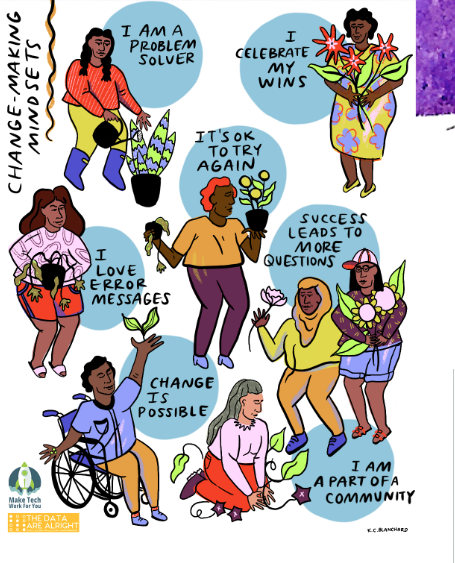Does Pain Make Us Stronger?
Inspiration for today’s blog post:
Hidden Brain episode “Healing 2.0: What We Gain from Pain”
One of the pillars of adult learning is READINESS.
How “ready” we are to learn and internalize learning is dependent on how open and receptive we are to the subject with which we are engaging. What can make us more “ready” to learn includes acknowledging how the learning can help us solve or avoid a problem, seeing how the learning can add value to our current work, and understanding the growth that can result from the learning. But we can also find ourselves experiencing major roadblocks to our readiness to learn in the form of past traumas we have experienced with our subject matter.
Everyone has had bad experiences with data and technology. As the Buddhist tradition teaches, life is suffering. These bad experiences play a very large role in our relationship with our technology. It is popular in American culture to espouse views on suffering as a strengths-builder (Some mucisians who wrote songs about it: Kelly Clarkson, Kanye West, Kacey Musgraves; TEDtalks of the same name: Martina Meyer, Saurabh Rane, Eddie Gavagan). But struggles with data & technology don’t naturally align themselves with building resilience and coming back stronger than before. In my experience, I’ve seen more people abandon technology that gave them trouble than find some sort of transformative strength-building happening within themselves.
Shankar Vedantam reports in Hidden Brain (linked above) that while popular wisdom tells us that what doesn’t kill us makes us stronger, scientifically this does not always play out. And this aligns with Buddhist teachings - if life is suffering, and suffering makes us stronger, then we would all have super-strength by now. Vedantam instead finds that science gives us a different understanding of suffering: “Trauma alone usually does not produce wisdom and compassion. A lot comes down to how you process trauma - how you reflect on your own suffering.” One study along these lines was conducted by the psychologist Judith Gluck and Nic Westrate. They found that [sic] the extent to which people engage in that type of self-reflection [(exploratory processing, or the extent to which you reflect on the event)], those people are much more likely to increase in wisdom and increase in wellbeing…”
How we reflect on our bad experiences with data & technology can help us produce wisdom and compassion. We can ask ourselves questions "Okay, what does this bad experience mean to me? How do I make sense of this? How can I use this event as an opportunity for me to do something different?" To be able to do this kind of exploratory processing takes muscle-building and time. It can also be helpful to know and embrace certain mindsets or values. Samantha Shain and I have put forth a list of mindsets that we find helpful to this sort of processing:
Another resource for guidance and practice in exploratory processing is a technology coach. A technology coach can help you work through this kind of exploratory processing and find the mindsets and values that are impactful for you in reflecting on bad experiences with data & technology with the aim of gaining wisdom and compassion. Compassion for yourself, for others, and even for your technology. Instead of throwing our computers out the window or opting-out of working with our data & tech, together we can embrace all of our experiences and reflect on them to grow. And importantly, to continue to learn, use, and love the data & tech tools we have to help us achieve our missions.


